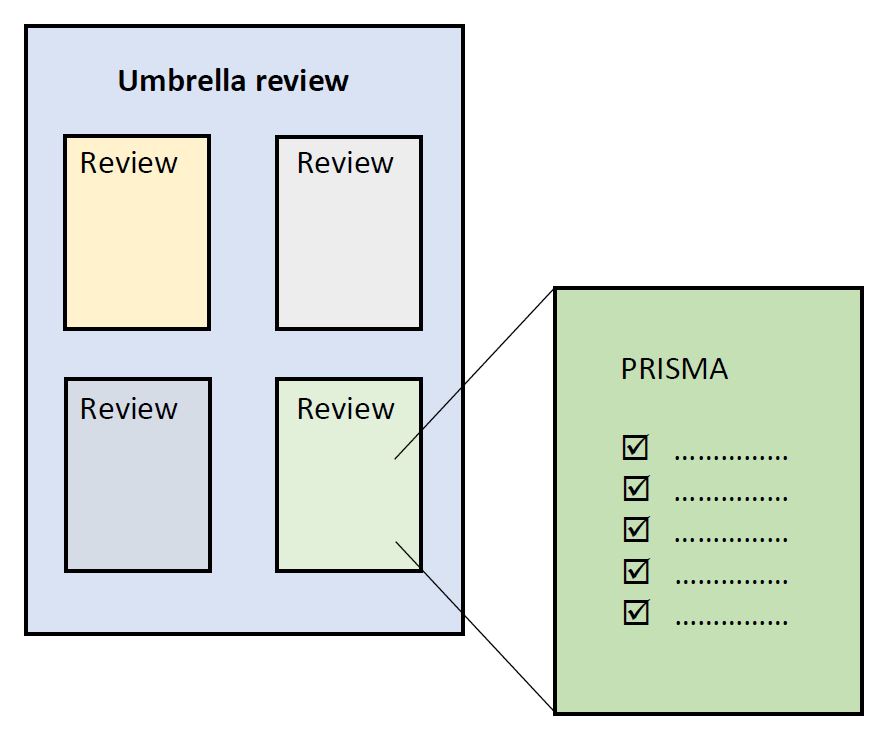This post is also available in:
 Deutsch
Deutsch
The systematic review of randomised controlled trials (with or without meta-analysis) is an important tool when appraising e.g. the effectiveness of interventions, although its place on top of the evidence pyramid is being discussed (1).
But apart from the systematic review, there is a number of other review types. In a recently published article 48 review types were identified, which were categorised into seven larger familes (2):
1. Traditional reviews
These include narrative, integrative and critical reviews. They use a purposive literature search in bibliographic databases as well as grey literature, and they give a (narrative or critical) overview of what is known in a research field.
2. Systematic reviews
These comprise Cochrane reviews, meta-analyses, and systematic reviews and have evolved from the traditional reviews. A comprehensive literature search and a transparent and reproducible production of the review are required in order to minimise bias.
3. Reviews of reviews
Evidence from several reviews can be summarised in overviews and umbrella reviews.

4. Rapid reviews
To produce information faster, parts of the systematic review process are simplified or omitted. This review type is rather suited for policy makers than for publication in a journal.
5. Qualitative reviews
These integrate or compare results from qualitative studies.
6. Mixed methods reviews
These combine results from quantitative and qualitative studies.
7. Purpose specific reviews
This is a mixed group, including health technology assessments, scoping reviews, and content analyses. Their aims can be to identify concepts, ideas or the size of available research literature.
As this lists shows to you, it does not always have to be a systematic review, sometimes other types may be more appropriate to answer a research question.
The main library offers consultations on literature searching (without charge) or conducts a systematic literature search for you (with costs).
References
(1) Murad MH, Asi N, Alsawas M, Alahdab F. New evidence pyramid. Evid Based Med 2016;21(4):125-127.
(2) Sutton A, Clowes M, Preston L, Booth A. Meeting the review family: exploring review types and associated information retrieval requirements. Health Info Libr J 2019;36(3):202-222.
